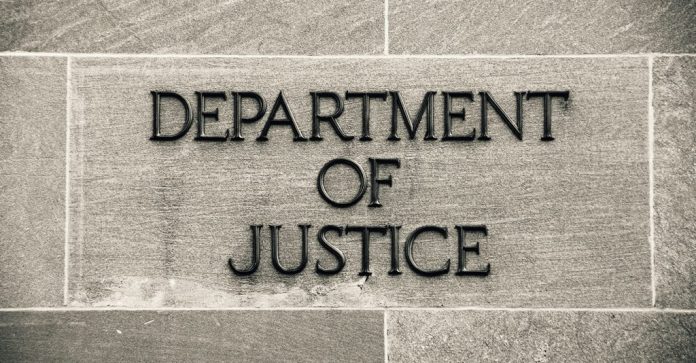
By Stacy M. Brown, NNPA Newswire Senior National Correspondent
Critics immediately threw cold water on a new FBI 2021 Hate Crime Statistics Act Report released by U.S. Department of Justice officials on Monday, Dec. 12.
Margaret Huang, the president, and CEO of the Southern Poverty Law Center, said while underreporting of hate crimes to the FBI remains an ongoing problem, the failure of state and local jurisdictions to report data makes the new report worse.
Over one-third of the nation’s 18,000 federal, state, local, and tribal law enforcement agencies failed to report data to the FBI.
In 2020, the number of agencies reporting was 3,300 fewer than in 2021.
The latest reporting year counted as the first in which the FBI required every agency to report all crimes, including hate crimes, through its National Incident-Based Reporting System (NIBRS).
Huang said that even though the FBI provided technical assistance and funding for its new requirement, many jurisdictions were unable or unwilling to report through the new system.
She said the result is dramatically incomplete.
It needs more data from major population centers, including New York City, Los Angeles, Chicago, Phoenix, and the entire states of Florida and California.
“While the FBI’s annual Hate Crime report has been the nation’s best available snapshot of hate violence in America, this year’s data is woefully incomplete, inaccurate, and simply cannot be trusted – certainly not to compare to previous years. Victims and communities affected by hate crimes deserve better,” Huang asserted.
“The failure of thousands of police agencies across the country to participate in this report is devastating for the individuals and communities harmed by these crimes and our ability to understand and prevent them,” she said.
Huang added that accurate, comprehensive national data is integral to addressing the root causes, designing prevention strategies, and providing support to victims and communities.
“There may be a temptation to draw conclusions from this woefully incomplete and flawed report about the rate of reported hate crimes, especially those targeting Black and AAPI communities, Sikhs, and LGBTQ people,” Huang continued.
“But comparing this piecemeal national data to previous years would be wrong. This first NIBRS reporting year data is simply too unreliable.
“We cannot outlaw hate, but we can do more to support victims of hate violence by ensuring they are heard and to confront the problem by measuring it accurately.
“As the transition to NIBRS continues, SPLC and our coalition partners will be urging the Justice Department and FBI to focus attention and resources on community-based prevention and response strategies.
“And, until legislation requiring hate crime reporting can be enacted, federal funds to law enforcement agencies should be conditioned on credible HCSA reporting, or meaningful community hate crime prevention and awareness initiatives. We can and must do better.”
The latest report found more than 7,000 hate crimes committed in 2021.
The FBI defines a hate crime as a “committed criminal offense which is motivated, in whole or in part, by the offender’s bias(es) against a race, religion, disability, sexual orientation, ethnicity, gender, or gender identity.” Ted Deutch, CEO of the American Jewish Committee, called the report “woefully inadequate.”
He said 35 major U.S. cities failed to report hate crimes in 2021, while the country’s two largest cities, New York, and Los Angeles, did not provide data.
The third-largest, Chicago, reported zero, according to the FBI’s report.
According to the report, more than 7,000 single-bias incidents were recorded involving more than 8,700 victims.
Sixty-five percent of victims were targeted because of the offender’s race, ethnicity, or ancestry bias; 16% occurred because of prejudice against the individual’s sexual orientation; 13% was religious bias; 4% gender identity; 2% disability; 1% gender bias.
The report further found 188 multiple-bias hate crime incidents involving 271 victims, and more than 5,700 hate offenses were classified as against persons, with 44% intimation, 36% simple assault, and 18% aggravated assault.
Officials classified nine murders and 13 rapes as hate crimes.
The statistics revealed that nearly 56% of the offenders were white, and about 21% were African American.
Since January 2021, the United States Department of Justice said it had taken several actions in response to a rise in hate crimes and incidents.
Some of these actions include aggressively investigating and prosecuting hate crimes as the department charged more than 60 defendants in over 55 different cases and secured more than 55 convictions.
DOJ also designated a Deputy Associate Attorney General as the first-ever Anti-Hate Crimes Resources Coordinator, and announced that all 94 U.S. Attorneys’ Offices would host a United Against Hate program over the next year to help improve the reporting of hate crimes by teaching community members how to identify, report and help prevent hate crimes, and to provide an opportunity for trust-building between law enforcement and communities.
“The Justice Department is committed to prioritizing prevention, investigation, and prosecution of hate crimes,” Associate U.S. Attorney General Vanita Gupta stated.
“The FBI’s 2021 Hate Crimes Statistics are a reminder of the need to continue our vigorous efforts to address this pervasive issue in America.”
Gupta added that the Justice Department continues to work with the nation’s law enforcement agencies to increase the reporting of hate crime statistics to the FBI to ensure they have the data to help accurately identify and prevent hate crimes.
“No one in this country should be forced to live their life in fear of being attacked because of what they look like, whom they love, or where they worship,” Gupta insisted.
“The department will continue using all the tools and resources at our disposal to stand up to bias-motivated violence in our communities.”


